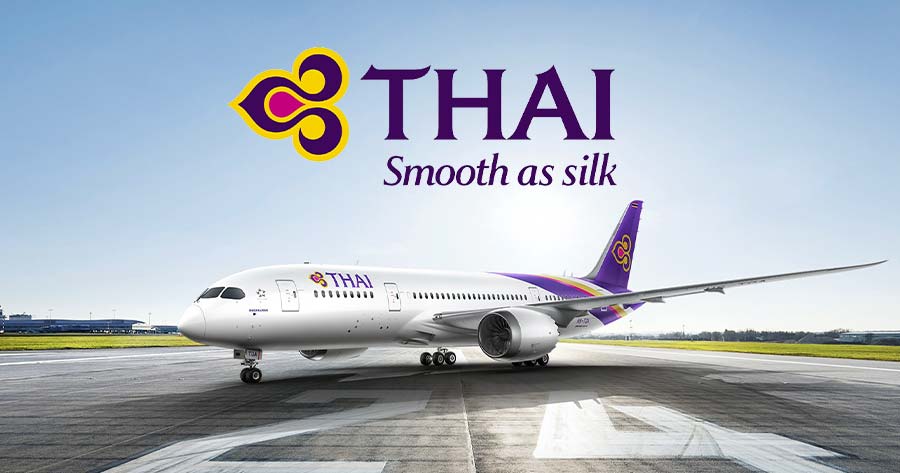Thailand’s flag carrier Thai Airways International Public Company Limited (SET: THAI) reaffirmed its commitment to transparency and professional governance amid market concerns that a planned board reshuffle could open the door to renewed political influence.
Shares of Thai Airways tumbled 11% on Oct. 9 and a further 5% on Oct. 10, after reports suggested the Ministry of Finance was preparing to nominate several new candidates to join the airline’s board of directors. The news came ahead of an unusual second Annual General Meeting (AGM) this year, during which the company plans to replace one-third of its current 11-member board to be in line with stock exchange regulations.
Investors’ anxiety stems from speculation that three key figures — Mr. Piyasvasti Amranand, Mr. Chansin Treenuchagron, and Air Chief Marshal Amnart Jeeramaneemaim — may see their tenure come to an end as their terms are near expiration. Market watchers fear the reshuffle could signal a return of state control and political oversight, reversing Thai Airways’ progress toward operating as a fully private company.
From State Enterprise to Private Turnaround
Founded as a state enterprise, Thai Airways had long struggled with bureaucratic inefficiencies and mounting losses. Its large 15-member board and lengthy decision-making processes hampered agility, contributing to years of financial distress that culminated in a debt restructuring plan initiated in 2020.
As part of the court-approved rehabilitation plan, the airline appointed EY Corporate Advisory Services Ltd. as its external advisor, with Piyasvasti Amranand leading the rehabilitation executives’ committee. The Ministry of Finance’s stake reduction below the majority that same year officially stripped Thai Airways of its state-enterprise status, allowing it to operate as a private entity with greater flexibility.
The transformation proved effective. After five years under rehabilitation, the company successfully met all restructuring milestones and returned triumphantly to trading on the Stock Exchange of Thailand on August 4, 2025. With a streamlined 11-member board, Thai Airways had been widely seen as a revitalized corporate model for post-crisis reform.
Statement from Thai Airways
Thai Airways International Public Company Limited (SET: THAI) has disclosed new information concerning its upcoming Annual General Meeting (AGM) and the process for board member replacements, underscoring the company’s efforts to ensure good governance practices and protection of shareholder rights.
Thai Airways has affirmed that its director nomination and selection process complies with the Public Limited Companies Act, the Securities and Exchange Act, and the airline’s own Articles of Association. The company emphasized that full shareholder rights are being upheld and that all procedures leading up to the 2025 AGM, which has yet to convene, remain transparent and in strict accordance with legal and regulatory standards.
Ministry’s Assurance of Independence
Lavaron Sangsnit, Permanent Secretary of the Ministry of Finance and chairman of Thai Airways, dismissed concerns that the new nominations represent a return to political management. He confirmed that the ministry has proposed 10 names for board consideration, all of whom are professionals from the private sector.
“Thai Airways is a truly listed company,” Lavaron said. “All directors over the past four months have carried out their duties with professionalism and in the best interests of the company. As long as I serve as chairman, I will ensure that every process remains transparent and free from corruption.”
Lavaron explained that the proposal to expand the board from 11 to 15 members is intended to address operational limitations rather than political motives. Currently, Thai Airways has only two subcommittees — the Audit Committee and the Nomination and Remuneration Committee — as required by stock exchange regulations. Because the three independent audit directors cannot serve on other committees, the company lacks sufficient members to establish a risk management committee — a vital structure for a corporation of Thai Airways’ scale.
“The increase to 15 directors is necessary to ensure adequate personnel for appropriate subcommittee formation,” he said.





